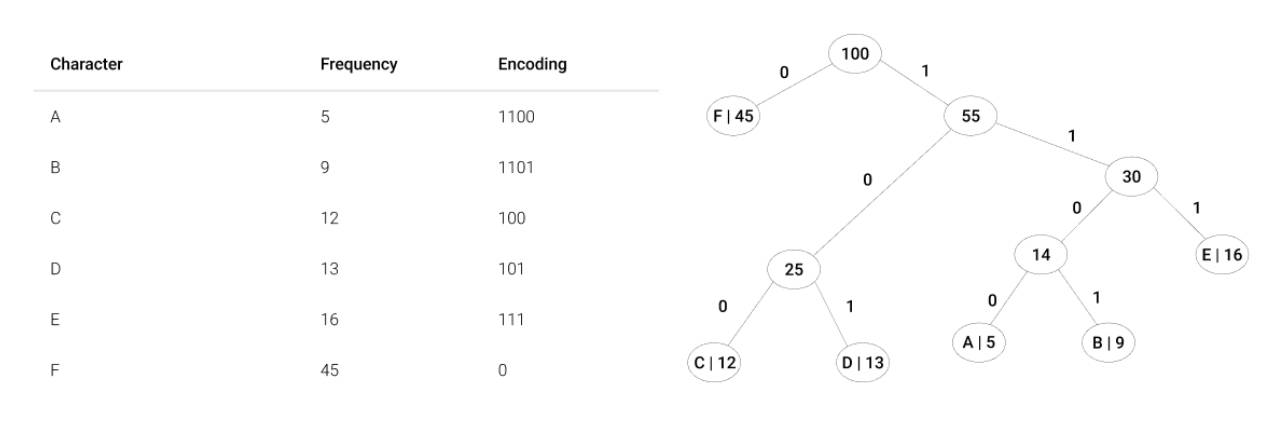Maths for fast algorithms
Detailed explanations and implementations of various maths concepts which can help software Engineers write high performance code/algorithms backed with Unit tests.
Note: This repo is a work in progress, contributions are highly appreciated.
Arithmetic Sequence (Arithmetic Progression)
Arithmetic Sequence is a sequence of numbers having a common/constant difference.
For example
100,200,300......n has a common difference of 100
By using technics for summing an arithmetic sequence (Sn)
all we need to know is the first term (A1) and the common difference (d).
Sn= n/2[2A1 + (n-1)d]
for Example: Consider a list of natural numbers below: –
1,2,3,4,......................................1,000,000
Using the naive approach to find the sum of the numbers would be to iterate through all numbers and add them one by one. Here is an example of swift code for the naive approach.
This approach will given us O(n) run time.
Naive approach Swift sample code, O(n)
import Foundation
public struct NaiveSum {
public func compute(firstTerm A1: Int, nthTerm n: Int, commonDifference d: Int) -> Int {
var allTerms: [Int] = []
var currentTerm: Int = A1
for _ in 1...n {
allTerms.append(currentTerm)
currentTerm += d
}
var sum:Int = 0
for term in allTerms {
sum += term
}
return sum
}
}
Gauss’s Arithmetic Series sum, O(1)
Now let’s try using technics for summing an arithmetic sequence to achive O(1) time complexity for summing a huge amount of numbers.
A swift implementation for arithmetic sum using Gauss’s technic is as follows.
import Foundation
public struct GaussSum {
public func compute(firstTerm a1: Int, nthTerm n: Int, commonDifference d: Int) -> Int {
// Sn = n/2 (2A1 + (n - 1)d)
let sum = (2 * a1 + (n - 1) * d) * n / 2
return sum
}
}
Unit tests to verify our implementation details
Note: Code snippet for this section can be run using Swift Playgrounds.You can find the source code here.
Let’s write some unit tests for the above two implementations with different data sets, starting from small amount of data to a very large amount. We will try to increase the nth term and see if our functions give use expected output.
public final class ArithmeticSequenceImplementationTests: XCTestCase {
// MARk: - Properties
public var naiveSum: NaiveSum!
public var gaussSum: GaussSum!
// MARK: - Life Cycle
public override func setUp() {
super.setUp()
naiveSum = NaiveSum()
gaussSum = GaussSum()
}
public override func tearDown() {
gaussSum = nil
naiveSum = nil
super.tearDown()
}
// Note: - I prefixed the tests with letters A,B,C... etc.. because Xcode run tests in alphabetic order by default,
// So prefixing them makes it easy to debug time complexity of each test.
// MARK: - Naive Tests
func test_A_NaiveApproachSumTo5GivesCorrectAnswer() {
// When
let sumToFithTerm = naiveSum.compute(
firstTerm: 1,
nthTerm: 5,
commonDifference: 2
)
// Then
XCTAssertEqual(sumToFithTerm, 25)
}
func test_B_NaiveApproachSumTo100GivesCorrectAnswer() {
// When
let sumToOneHundred = naiveSum.compute(
firstTerm: 1,
nthTerm: 100,
commonDifference: 1
)
// Then
XCTAssertEqual(sumToOneHundred, 5050)
}
func test_C_NaiveApproachSumTo_50000_GivesCorrectAnswer() {
// When
let sumToOneHundred = naiveSum.compute(
firstTerm: 10,
nthTerm: 50_000,
commonDifference: 15
)
// Then
XCTAssertEqual(sumToOneHundred, 18750125000)
}
// MARK: - Gauss Tests
func test_D_GaussAproachSumTo5GivesCorrectAnswer() {
// When
let sumToFithTerm = gaussSum.compute(
firstTerm: 1,
nthTerm: 5,
commonDifference: 2
)
// Then
XCTAssertEqual(sumToFithTerm, 25)
}
func test_E_GaussAproachSumTo100GivesCorrectAnswer() {
// When
let sum = gaussSum.compute(
firstTerm: 1,
nthTerm: 100,
commonDifference: 1
)
// Then
XCTAssertEqual(sum, 5050)
}
func test_F_GaussAproachSumTo_50000_GivesCorrectAnswer() {
// When
let sumToOneHundred = gaussSum.compute(
firstTerm: 10,
nthTerm: 50_000,
commonDifference: 15
)
// Then
XCTAssertEqual(sumToOneHundred, 18750125000)
}
}
Running Implemnentation Tests
In the sources folder there is a playground file named ArithmeticSequence. All tests are triggered in that file as follows.
import Foundation
import XCTest
let testObserver = TestObserver()
XCTestObservationCenter.shared.addTestObserver(testObserver)
ArithmeticSequenceTests.defaultTestSuite.run()
// MARK: - Sample Outputs
/*
Test Suite 'ArithmeticSequenceTests' started at 2022-04-03 01:45:51.791
Test Case '-[__lldb_expr_23.ArithmeticSequenceTests test_A_NaiveApproachSumTo5GivesCorrectAnswer]' started.
Test Case '-[__lldb_expr_23.ArithmeticSequenceTests test_A_NaiveApproachSumTo5GivesCorrectAnswer]' passed (0.049 seconds).
Test Case '-[__lldb_expr_23.ArithmeticSequenceTests test_B_NaiveApproachSumTo100GivesCorrectAnswer]' started.
Test Case '-[__lldb_expr_23.ArithmeticSequenceTests test_B_NaiveApproachSumTo100GivesCorrectAnswer]' passed (0.016 seconds).
Test Case '-[__lldb_expr_23.ArithmeticSequenceTests test_C_NaiveApproachSumTo_50000_GivesCorrectAnswer]' started.
Test Case '-[__lldb_expr_23.ArithmeticSequenceTests test_C_NaiveApproachSumTo_50000_GivesCorrectAnswer]' passed (0.031 seconds).
Test Case '-[__lldb_expr_23.ArithmeticSequenceTests test_D_GaussAproachSumTo5GivesCorrectAnswer]' started.
Test Case '-[__lldb_expr_23.ArithmeticSequenceTests test_D_GaussAproachSumTo5GivesCorrectAnswer]' passed (0.001 seconds).
Test Case '-[__lldb_expr_23.ArithmeticSequenceTests test_E_GaussAproachSumTo100GivesCorrectAnswer]' started.
Test Case '-[__lldb_expr_23.ArithmeticSequenceTests test_E_GaussAproachSumTo100GivesCorrectAnswer]' passed (0.001 seconds).
Test Case '-[__lldb_expr_23.ArithmeticSequenceTests test_F_GaussAproachSumTo_50000_GivesCorrectAnswer]' started.
Test Case '-[__lldb_expr_23.ArithmeticSequenceTests test_F_GaussAproachSumTo_50000_GivesCorrectAnswer]' passed (0.001 seconds).
Test Suite 'ArithmeticSequenceTests' passed at 2022-04-03 01:45:51.907.
Executed 6 tests, with 0 failures (0 unexpected) in 0.099 (0.116) seconds
*/
Interpretations of the console output
- The ouput above is for the implementation details of our algorithms, All tests passed so we can rest assured that our algorithms will give us correct results for any data sets.
- Note that the time stemps printed on console above, it is not safe to use them as a measure of performance because other tasks are being done by Xcode such as cleaning up the tests before running each test etc.. So we are going to write better tests just for verifying the performance in the next section.
Performance Tests
Now let’s write tests specifically for measuring performance of individual functions regardless of the IDE background tasks. This will give us more correct results to verify our hypothesis.
Note: Code snippet for this section too can be run using Swift Playgrounds. You can find the source code here.
import Foundation
import XCTest
public final class ArithmeticSequenceSpeedMeasurementsTests: XCTestCase {
func test_A_NaiveSumSpeedForSmallDataSets() {
measureMetrics(
[.wallClockTime],
automaticallyStartMeasuring: false
) {
startMeasuring()
let _ = computeSumOfNaturalNumbersUsingNaiveApproach(
firstTerm: 1,
nthTerm: 10,
commonDifference: 1
)
stopMeasuring()
}
}
func test_B_NaiveSumSpeedForLargeDataSets() {
measureMetrics(
[.wallClockTime],
automaticallyStartMeasuring: false
) {
startMeasuring()
let _ = computeSumOfNaturalNumbersUsingNaiveApproach(
firstTerm: 1,
nthTerm: 100_000,
commonDifference: 1
)
stopMeasuring()
}
}
func test_C_GaussSpeedForSmallDataSets() {
measureMetrics(
[.wallClockTime],
automaticallyStartMeasuring: false
) {
startMeasuring()
let _ = computeSumOfNaturalNumbersUsingGaussApproach(
firstTerm: 1,
nthTerm: 10,
commonDifference: 1
)
stopMeasuring()
}
}
func test_D_GaussSumSpeedForLargeDataSets() {
measureMetrics(
[.wallClockTime],
automaticallyStartMeasuring: false
) {
startMeasuring()
let _ = computeSumOfNaturalNumbersUsingGaussApproach(
firstTerm: 1,
nthTerm: 100_000,
commonDifference: 1
)
stopMeasuring()
}
}
}
Running Performance measurement Tests
Similar to implementation tests above tests for this section can also be triggered from the ArithmeticSequence playground included in Sources folder as follows.
import Foundation
import XCTest
let testObserver = TestObserver()
XCTestObservationCenter.shared.addTestObserver(testObserver)
ArithmeticSequenceSpeedMeasurementsTests.defaultTestSuite.run()
// MARK: - Sample Output
/*
Test Suite 'ArithmeticSequenceSpeedMeasurementsTests' started at 2022-04-03 03:31:00.706
Test Case '-[ArithmeticSequence_Sources.ArithmeticSequenceSpeedMeasurementsTests test_A_NaiveSumSpeedForSmallDataSets]' started.
<unknown>:0: Test Case '-[ArithmeticSequence_Sources.ArithmeticSequenceSpeedMeasurementsTests test_A_NaiveSumSpeedForSmallDataSets]' measured [Time, seconds] average: 0.000, relative standard deviation: 154.337%, values: [0.000144, 0.000015, 0.000013, 0.000012, 0.000012, 0.000012, 0.000012, 0.000012, 0.000012, 0.000012], performanceMetricID:com.apple.XCTPerformanceMetric_WallClockTime, baselineName: "", baselineAverage: , polarity: prefers smaller, maxPercentRegression: 10.000%, maxPercentRelativeStandardDeviation: 10.000%, maxRegression: 0.100, maxStandardDeviation: 0.100
Test Case '-[ArithmeticSequence_Sources.ArithmeticSequenceSpeedMeasurementsTests test_A_NaiveSumSpeedForSmallDataSets]' passed (0.266 seconds).
Test Case '-[ArithmeticSequence_Sources.ArithmeticSequenceSpeedMeasurementsTests test_B_NaiveSumSpeedForLargeDataSets]' started.
<unknown>:0: Test Case '-[ArithmeticSequence_Sources.ArithmeticSequenceSpeedMeasurementsTests test_B_NaiveSumSpeedForLargeDataSets]' measured [Time, seconds] average: 0.053, relative standard deviation: 8.010%, values: [0.054845, 0.053265, 0.063672, 0.053840, 0.054468, 0.052207, 0.048998, 0.048461, 0.049184, 0.050229], performanceMetricID:com.apple.XCTPerformanceMetric_WallClockTime, baselineName: "", baselineAverage: , polarity: prefers smaller, maxPercentRegression: 10.000%, maxPercentRelativeStandardDeviation: 10.000%, maxRegression: 0.100, maxStandardDeviation: 0.100
Test Case '-[ArithmeticSequence_Sources.ArithmeticSequenceSpeedMeasurementsTests test_B_NaiveSumSpeedForLargeDataSets]' passed (0.782 seconds).
Test Case '-[ArithmeticSequence_Sources.ArithmeticSequenceSpeedMeasurementsTests test_C_GaussSpeedForSmallDataSets]' started.
<unknown>:0: Test Case '-[ArithmeticSequence_Sources.ArithmeticSequenceSpeedMeasurementsTests test_C_GaussSpeedForSmallDataSets]' measured [Time, seconds] average: 0.000, relative standard deviation: 42.445%, values: [0.000002, 0.000001, 0.000001, 0.000001, 0.000001, 0.000001, 0.000001, 0.000001, 0.000001, 0.000001], performanceMetricID:com.apple.XCTPerformanceMetric_WallClockTime, baselineName: "", baselineAverage: , polarity: prefers smaller, maxPercentRegression: 10.000%, maxPercentRelativeStandardDeviation: 10.000%, maxRegression: 0.100, maxStandardDeviation: 0.100
Test Case '-[ArithmeticSequence_Sources.ArithmeticSequenceSpeedMeasurementsTests test_C_GaussSpeedForSmallDataSets]' passed (0.253 seconds).
Test Case '-[ArithmeticSequence_Sources.ArithmeticSequenceSpeedMeasurementsTests test_D_GaussSumSpeedForLargeDataSets]' started.
<unknown>:0: Test Case '-[ArithmeticSequence_Sources.ArithmeticSequenceSpeedMeasurementsTests test_D_GaussSumSpeedForLargeDataSets]' measured [Time, seconds] average: 0.000, relative standard deviation: 42.183%, values: [0.000004, 0.000002, 0.000002, 0.000001, 0.000001, 0.000001, 0.000001, 0.000002, 0.000001, 0.000001], performanceMetricID:com.apple.XCTPerformanceMetric_WallClockTime, baselineName: "", baselineAverage: , polarity: prefers smaller, maxPercentRegression: 10.000%, maxPercentRelativeStandardDeviation: 10.000%, maxRegression: 0.100, maxStandardDeviation: 0.100
Test Case '-[ArithmeticSequence_Sources.ArithmeticSequenceSpeedMeasurementsTests test_D_GaussSumSpeedForLargeDataSets]' passed (0.252 seconds).
Test Suite 'ArithmeticSequenceSpeedMeasurementsTests' passed at 2022-04-03 03:31:02.273.
Executed 4 tests, with 0 failures (0 unexpected) in 1.552 (1.567) seconds
*/
Demistifying Console Outputs
-
Naive sum performance results.
test_A_NaiveSumSpeedForSmallDataSetstook 0.266 seconds.test_B_NaiveSumSpeedForLargeDataSetstook 0.782 seconds (Almost 3 times the small data sets) ->O(n)runtime.
-
Gauss Arithmetic sum performance results.
test_C_GaussSpeedForSmallDataSetstook 0.253 seconds.test_D_GaussSumSpeedForLargeDataSetsSurprisingly took 0.252 seconds which is the almost exactly similar (O(1)run time) to the method for small data sets above.
Contributing
This is a work in progress so, I welcome any contributions which involves usage of maths theorem/formulas to achieve high performance algorithms. Please see the CONTRIBUTING for how to get involved.



